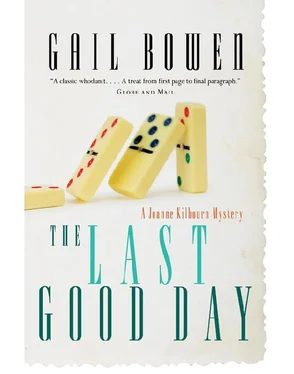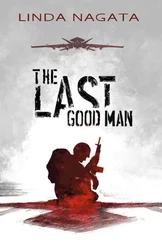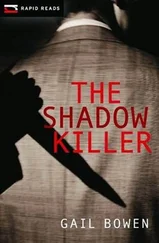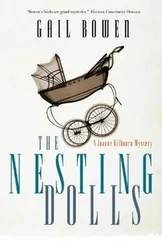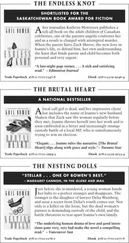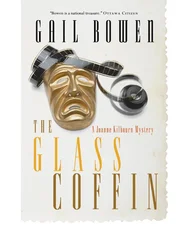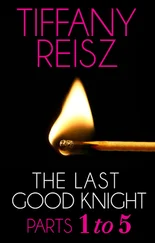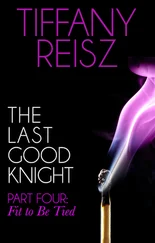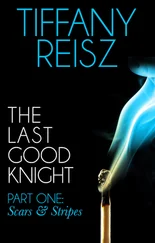Gail Bowen - The Last Good Day
Здесь есть возможность читать онлайн «Gail Bowen - The Last Good Day» весь текст электронной книги совершенно бесплатно (целиком полную версию без сокращений). В некоторых случаях можно слушать аудио, скачать через торрент в формате fb2 и присутствует краткое содержание. Жанр: Классический детектив, на английском языке. Описание произведения, (предисловие) а так же отзывы посетителей доступны на портале библиотеки ЛибКат.
- Название:The Last Good Day
- Автор:
- Жанр:
- Год:неизвестен
- ISBN:нет данных
- Рейтинг книги:4 / 5. Голосов: 1
-
Избранное:Добавить в избранное
- Отзывы:
-
Ваша оценка:
- 80
- 1
- 2
- 3
- 4
- 5
The Last Good Day: краткое содержание, описание и аннотация
Предлагаем к чтению аннотацию, описание, краткое содержание или предисловие (зависит от того, что написал сам автор книги «The Last Good Day»). Если вы не нашли необходимую информацию о книге — напишите в комментариях, мы постараемся отыскать её.
The Last Good Day — читать онлайн бесплатно полную книгу (весь текст) целиком
Ниже представлен текст книги, разбитый по страницам. Система сохранения места последней прочитанной страницы, позволяет с удобством читать онлайн бесплатно книгу «The Last Good Day», без необходимости каждый раз заново искать на чём Вы остановились. Поставьте закладку, и сможете в любой момент перейти на страницу, на которой закончили чтение.
Интервал:
Закладка:
The three remaining partners of Falconer Shreve made their entrance together. Blake carried an earthenware urn whose purpose was all too evident. Behind the partners, like an afterthought, Noah and Lily walked with their daughters. The priests and the clerical party made their way up the aisle, and the Mass for the dead began.
The incense was lit, reminding us of the moment of Christopher Altieri’s baptism; the words of comfort were offered and people sat back lulled by a liturgy that either soothed or bored them. Only when Zack Shreve pushed his chair to a spot in front of the chancel steps did the air become charged. The priest, whose speech carried the soft lilt of the West Indies, had used a microphone, but Zack had an actor’s voice, deep and sonorous. Kevin told me that in a courtroom Zack used his voice like an instrument, whispering, booming, dripping with venom as the occasion demanded. That day, Zack chose to draw the huge and disparate crowd into a circle of intimacy with him at the centre.
His words cut deep. “Life is precarious,” he said. “The only certainty is that we are mysteries even to one another. All of us loved Chris Altieri. None of us could save him. Chris had a favourite piece of music. It’s called Lux Aeterna, which for those of you who have forgotten means Eternal Light. That, of course, is what Chris was to us.”
From the first notes, the piece was – no other word for it – transcendent, a work of such radiant beauty that it seemed to bathe us all in the perpetual light of its Latin title. The text was drawn from many sources, sacred and secular; the words were, by turns, lyric, contemplative, exultant. I turned my mind off and let the music wash over me. When the choir concluded with an exuberant “Alleluia,” I felt my heart lift. Beside me, Patsy Choi’s lips curved with joy – the music had touched her too. As I knelt to say a final prayer, I wondered whether Lux Aeterna had worked for Chris – whether in the last months of his life he had found a measure of peace in this ethereal music.
Patsy Choi slipped away before the recessional. Understandably, she was no fan of crowds. Neither was I, but I was in no hurry to leave the cathedral, and I was not anxious to face Lily Falconer, so I stayed behind, and as the mourners trailed out I walked to one of the side aisles to look at the building’s famous stained-glass windows.
I was pondering what was going on behind the sorrowing face of the Queen of Virgins when I sensed that I wasn’t alone. Once again, someone had joined me, but this time I knew my companion. Anne Millar had been a student of mine. “I have to talk to you, Joanne,” she said. “There’s something terribly wrong at Falconer Shreve.”
CHAPTER
4
When she’d been a seminar leader for the Political Science 100 class I taught, Anne Millar had been a plump, quietly pretty girl who wore no-name jeans and baggy sweaters and eschewed makeup as a political statement. Since then, she’d graduated from law school and landed a job with our city’s oldest and most prestigious law firm. Apparently, success had caused her to revisit both her philosophy and her wardrobe. With her shoulder-length blond hair, black miniskirted power suit, and strappy stilettos, she was now the epitome of courtroom chic – a woman to be reckoned with. From the set of her jaw and the tension in her body that afternoon, it was also clear that she had an agenda.
“If there’s something wrong at Falconer Shreve, you should talk to one of the partners,” I said.
Anne’s gaze was withering. “Those are the last people I’d talk to about this,” she said.
An old woman smelling of mothballs and piety joined us and gazed with rheumy, loving eyes at the stained-glass portrait of Our Lady. When Anne spotted the old woman, she clamped my elbow and steered me to the next window: Mary, Comforter of the Afflicted. Anne apparently was not in need of comfort. Without giving Mary even the most cursory of glances, Anne began her story. “Chris Altieri left a message on my machine the night he died. He said he had to talk to me.” She raised an eyebrow. “He said he had to atone.”
My mind jumped to the first and most obvious possibility: Anne had been the woman with whom Chris had been involved, the lover he had forced to seek an abortion. “Maybe you should start at the beginning,” I said.
“There is no beginning,” she said. “I was away for the long weekend and I didn’t get back till after midnight, so I didn’t pick up the message till Tuesday morning. By then, of course, it was too late.”
Anne’s eyes darted around the cathedral. A few people had lingered to pray. Others were staying behind to take in the famous windows of Holy Rosary.
“This isn’t a good place to talk,” she said.
“No,” I agreed, “it isn’t.”
“Then let’s get out of here. I live at the Balfour. It’s five minutes away and air-conditioned.”
Hot and sick at heart, I was an easy sell. “Let’s go,” I said.
I didn’t manage a clean getaway. As I walked down 13th Avenue to my car, I heard Zack Shreve behind me.
“Hey,” he said. “You can’t blow off the reception. I promised to pour.”
“You’ll have to show me your technique another time,” I said. “I’ve decided just to drive straight back to the lake.”
He looked at me hard. “That’s a lie,” he said pleasantly.
I flushed. “Why would I lie?”
“I don’t know,” he said. “Why would you?” He shrugged and smiled. “You’re a woman of mystery,” he said, and he wheeled away.
On a day when the world seemed an increasingly uncertain place, the solid bulk of the apartments that had become the Balfour Condominiums was reassuring. Sturdily built and handsome, the Balfour had anchored the corner of Victoria Avenue and Lorne Street for generations. Once the preserve of lifelong bachelors with ascots and ladies with mauve-tinted hair, the Balfour had been discovered by the young and affluent, people willing to pay a good chunk of change for a central location, classic lines, and the chance to do a serious reno.
Anne Millar had apparently decided against knocking down walls and installing stainless-steel appliances. Her apartment had the antique charm of a carefully preserved dowager: floors covered with the boundless richness of Persian carpets; walls hung with lush landscapes by long-dead Victorians; massive ornate furniture that glowed with the patina of age.
Anne was a distracted but efficient hostess. She filled a silver bucket and placed it on a tray with gin, tonic, two heavy monogrammed glasses, and two ecru linen napkins, also monogrammed. We sat at a round breakfast table that looked out on Victoria Park. Anne poured the drinks, handed me mine, and took a large sip from hers.
“This could get to be a habit very easily,” she said.
“Luckily, we don’t bury a good man every day,” I said.
Anne eyed the condensation on her glass. “I’m not sure Chris Altieri was such a good man,” she said.
She walked over to a side table and touched the button on her answering machine. Chris Altieri’s voice, nervous and tentative, filled the room. “I need to atone,” he said. “There are a lot of people I have to talk to, but I thought I’d start with you. Name the time and place and I’ll be there.” His laugh was nervous. “And make it soon, please. I’m losing my courage.”
I felt a pang. The last time I’d seen Chris Altieri, I told him nothing was unforgiveable. Apparently, he’d been listening.
Anne held out her hands, palms up, in a gesture of frustration. “What do you make of that?”
I was still operating from the script in which she and Chris had been lovers. “It must at least give you some kind of comfort,” I said.
Читать дальшеИнтервал:
Закладка:
Похожие книги на «The Last Good Day»
Представляем Вашему вниманию похожие книги на «The Last Good Day» списком для выбора. Мы отобрали схожую по названию и смыслу литературу в надежде предоставить читателям больше вариантов отыскать новые, интересные, ещё непрочитанные произведения.
Обсуждение, отзывы о книге «The Last Good Day» и просто собственные мнения читателей. Оставьте ваши комментарии, напишите, что Вы думаете о произведении, его смысле или главных героях. Укажите что конкретно понравилось, а что нет, и почему Вы так считаете.
